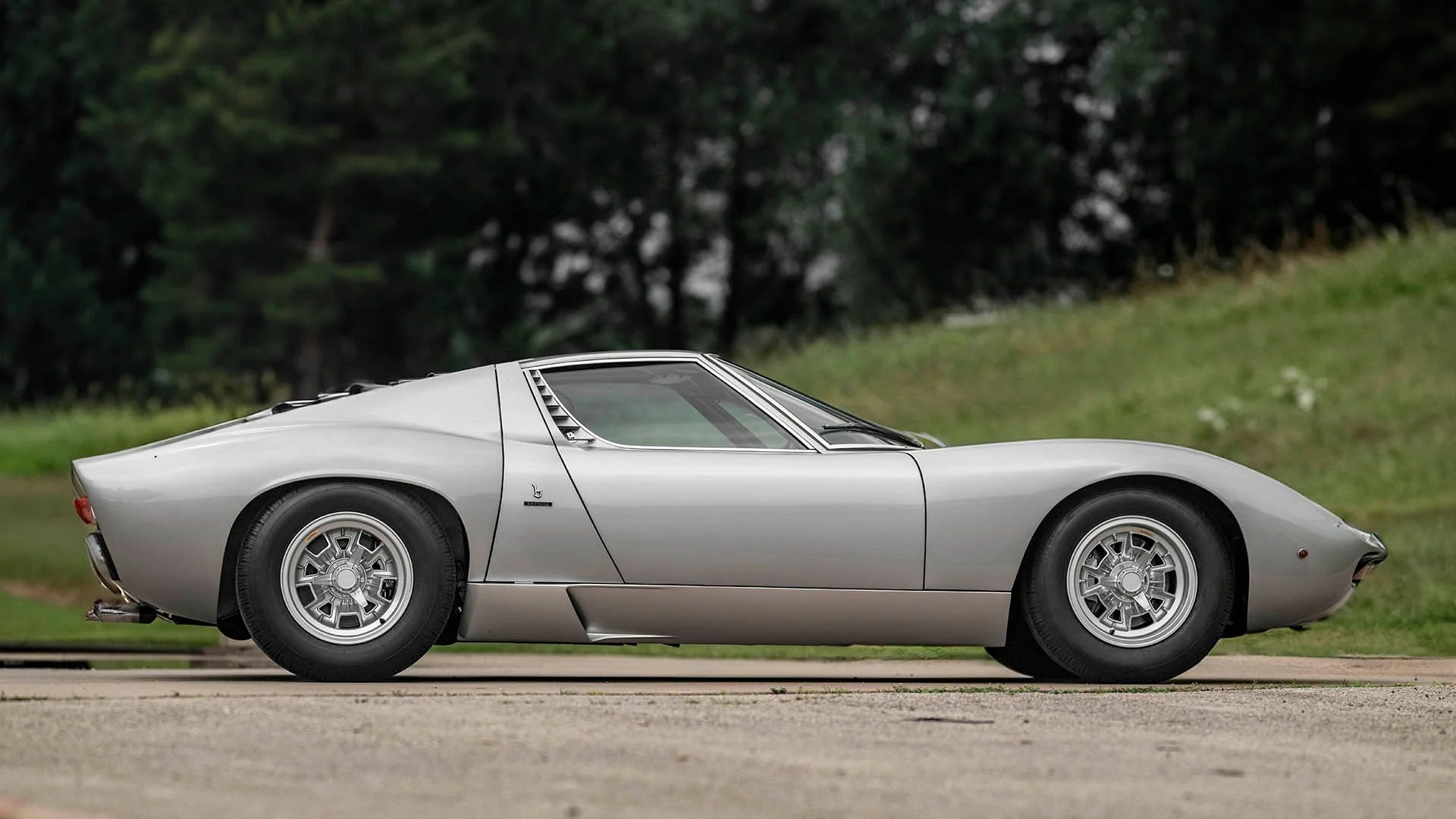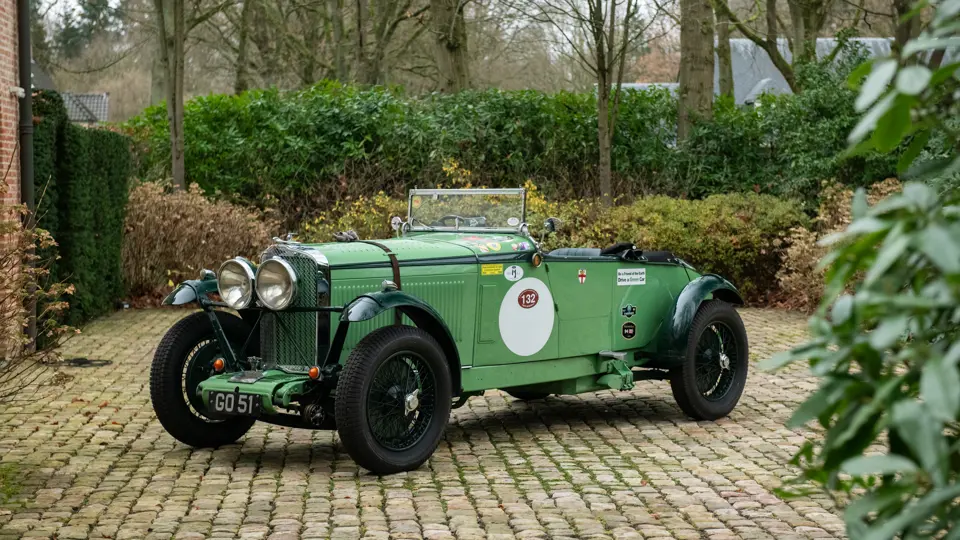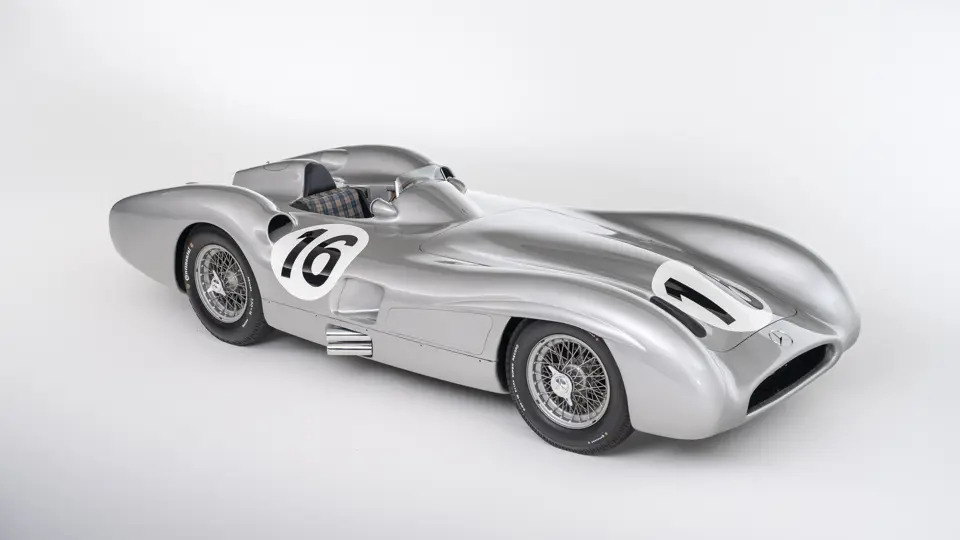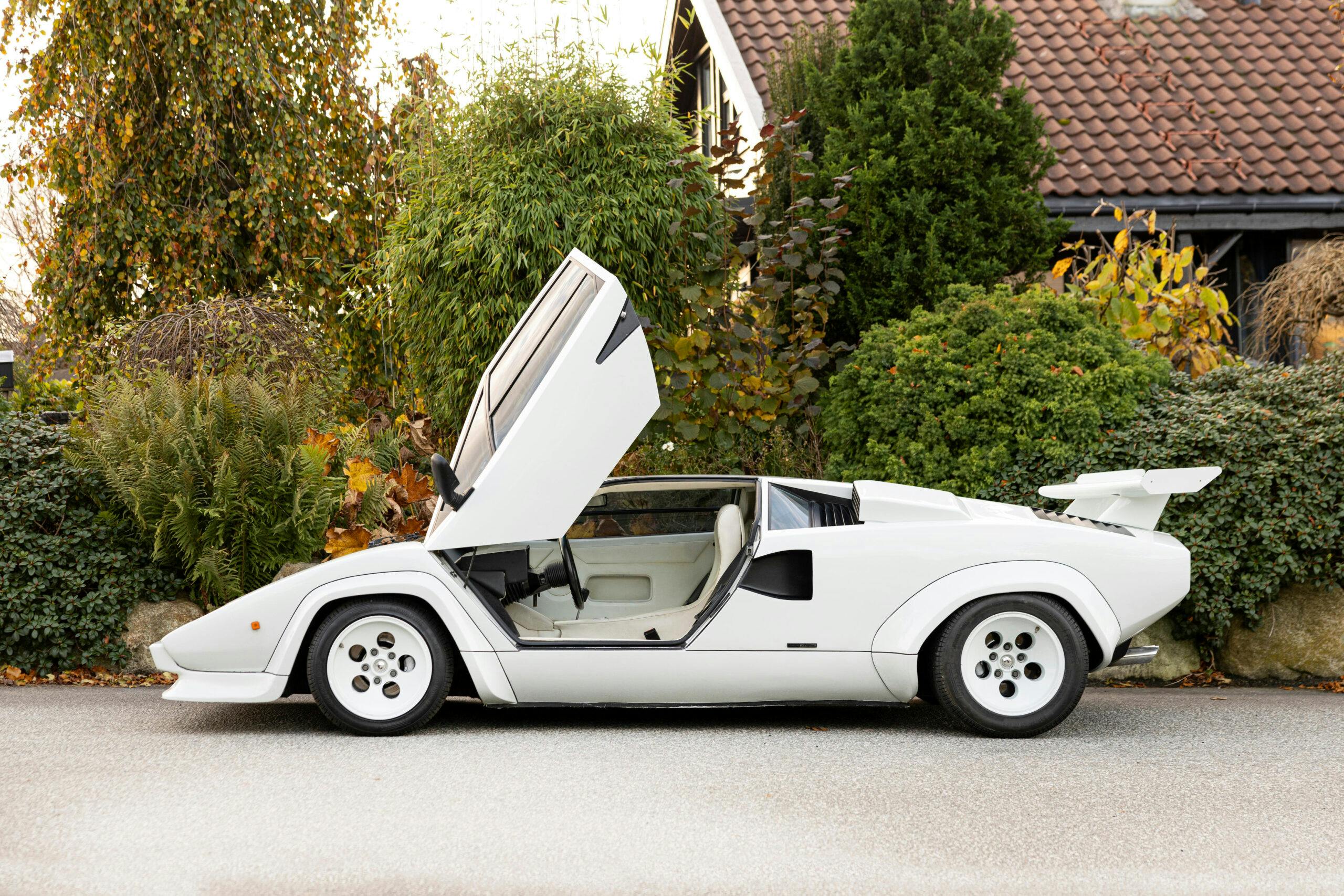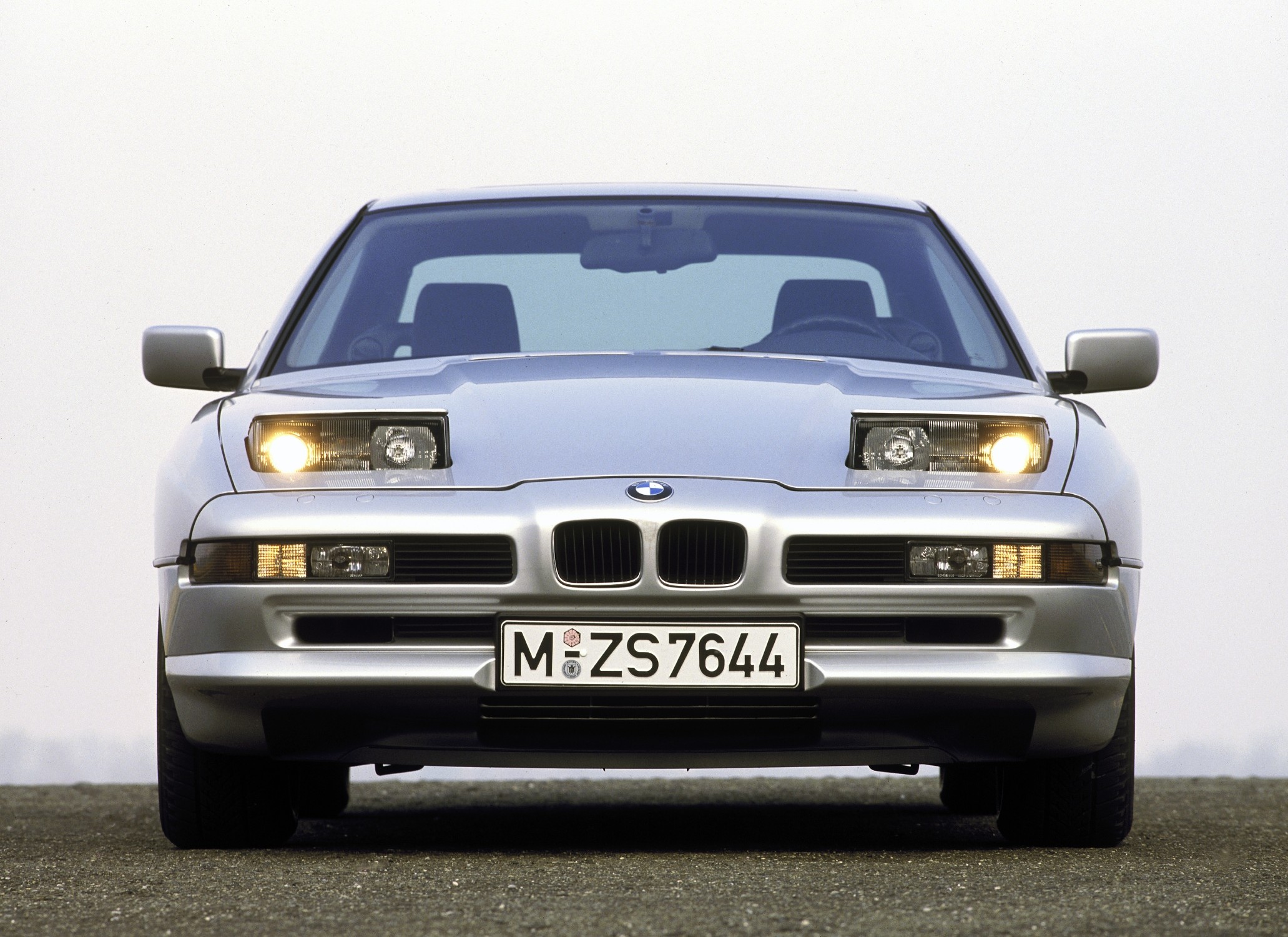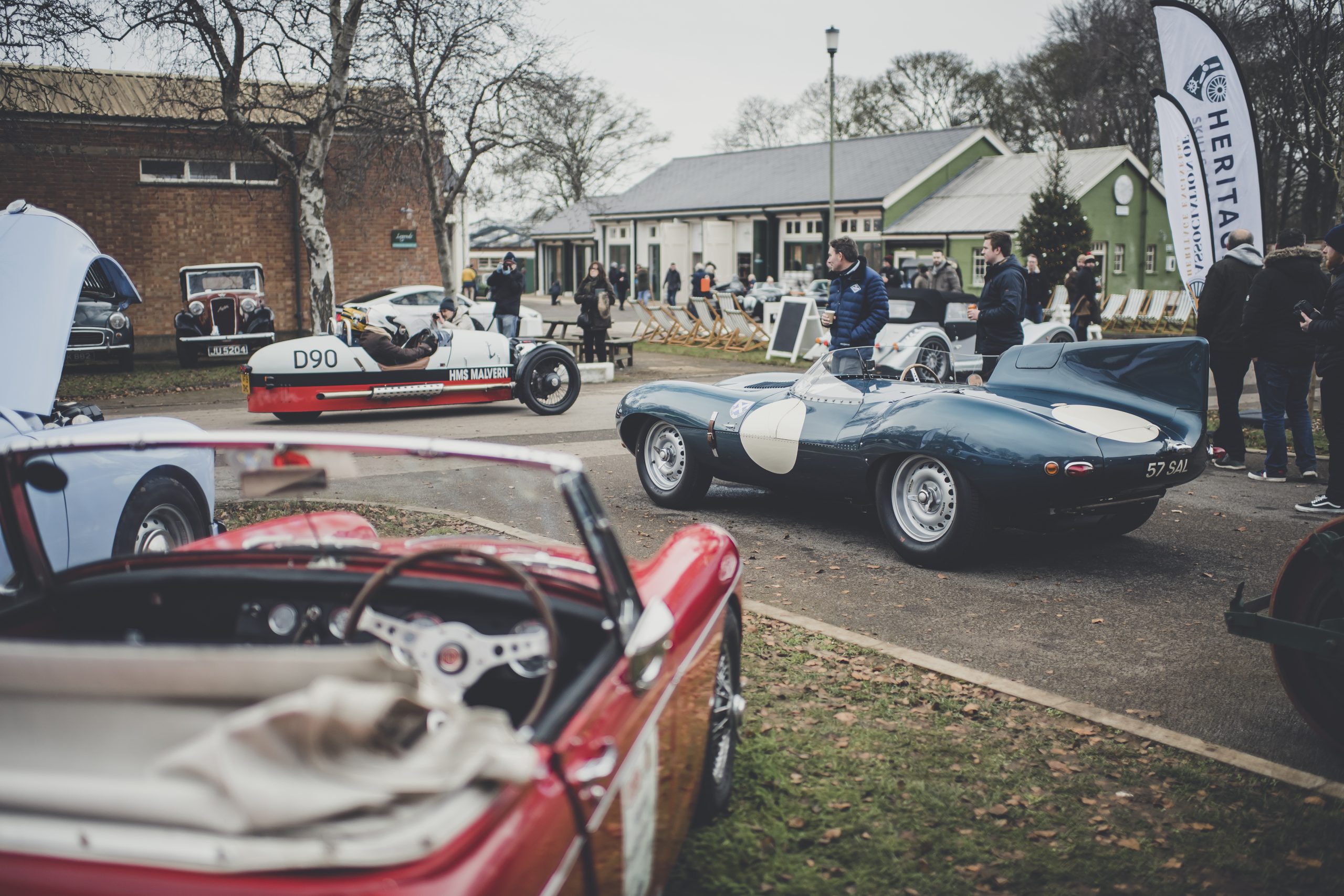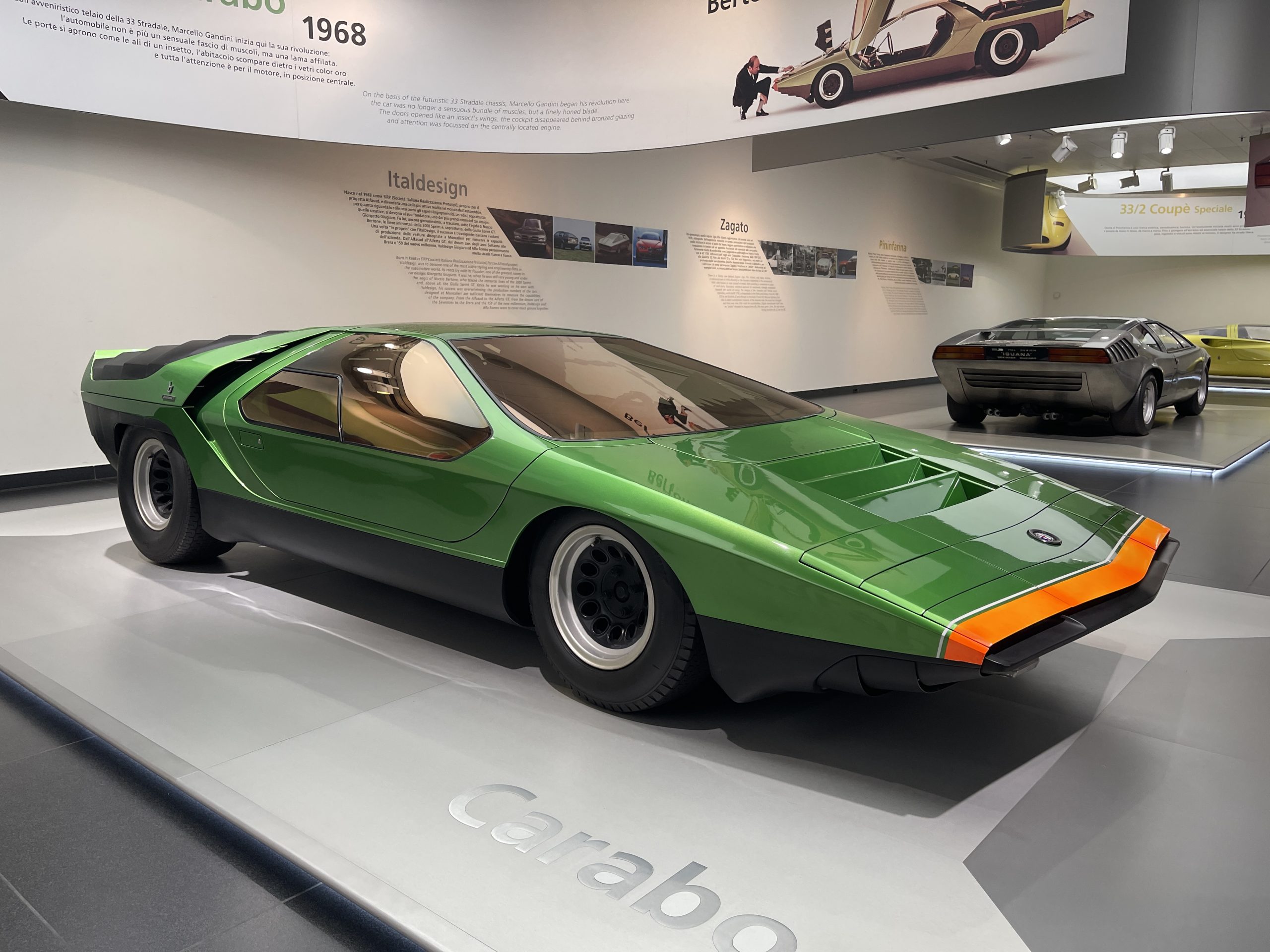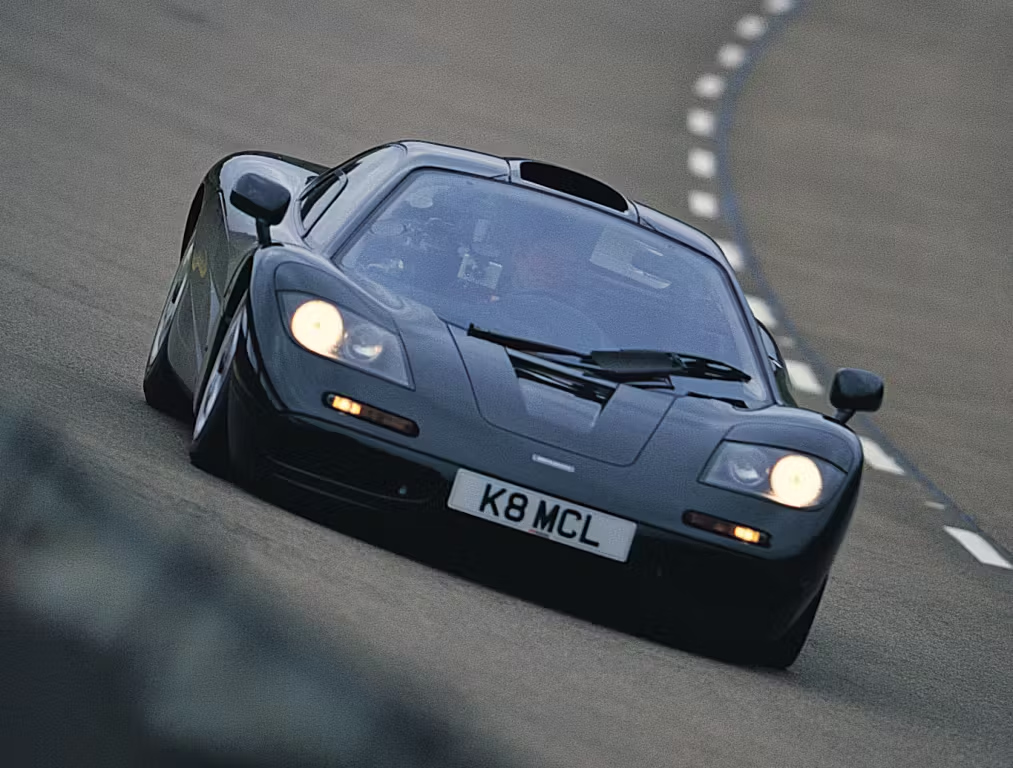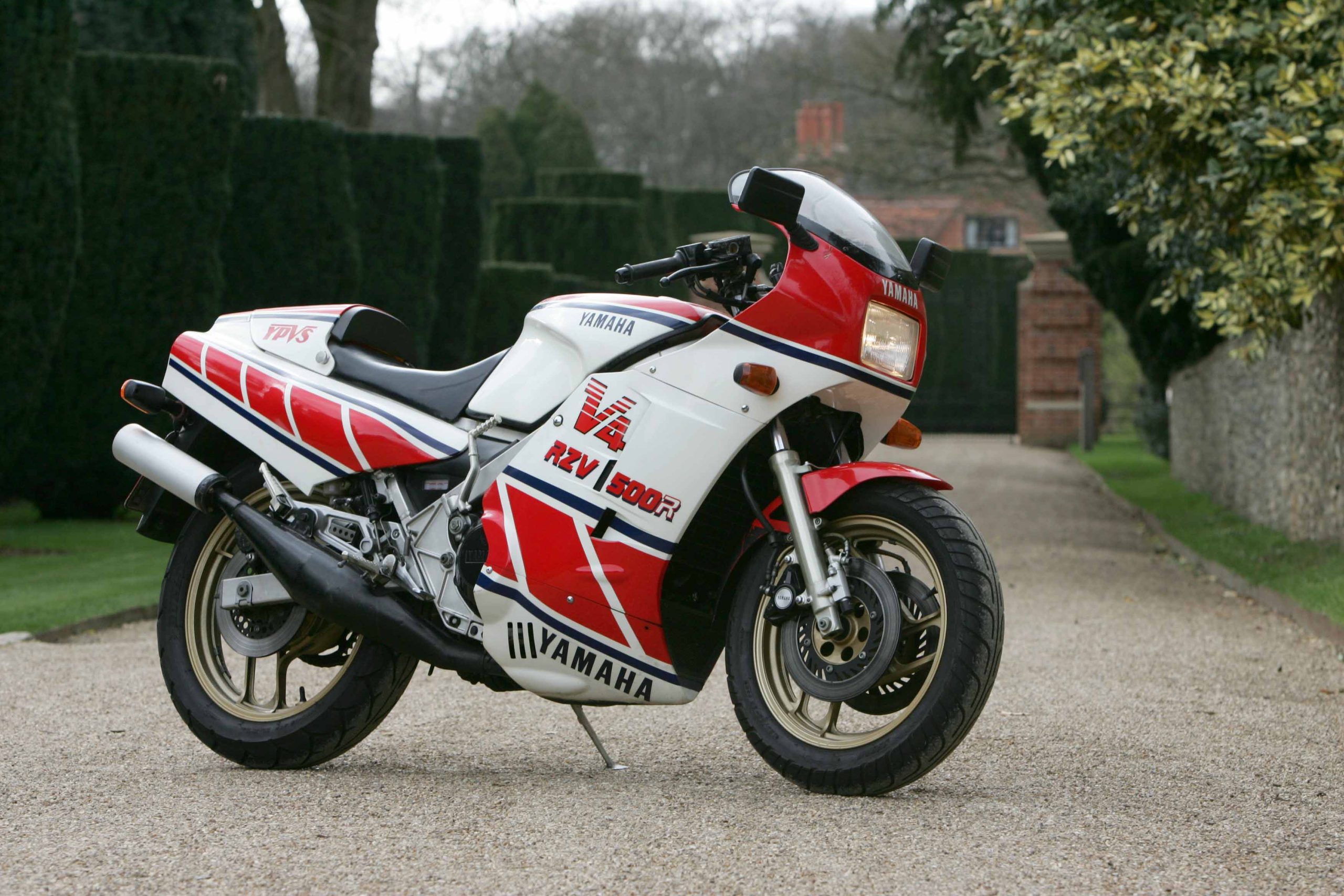The words “supercar” and “Lamborghini” go hand in hand these days. The 1966–73 Miura is a big reason for that. It set the boutique carmaker from Sant’Agata Bolognese down the path of brash, brightly coloured exotics that it’s still speeding down today, and it set era-defining benchmarks for both beauty and performance. But it wasn’t until relatively recently that this king of the bulls became a serious, seven-figure, blue-chip collector car. Fifteen years ago, most Miuras sold in mid-six-figure territory. Their median #2 (excellent) value is up 687 percent since then, though, and after a world-record £3.85M result for a Miura SV at auction last month, it’s clear that Miuras in the right condition and with the right specs are can sell well into the millions.
That’s one of the many reasons why we’re interested to see what comes of the Monterey auctions next month. Between four auction companies, five Miuras will be crossing an auction block during the week. We’ve never seen that many offered at once before, and all three flavours of Miura – P400, P400 S, and P400 SV – are represented. Let’s look at all five . . .

1968 Miura P400
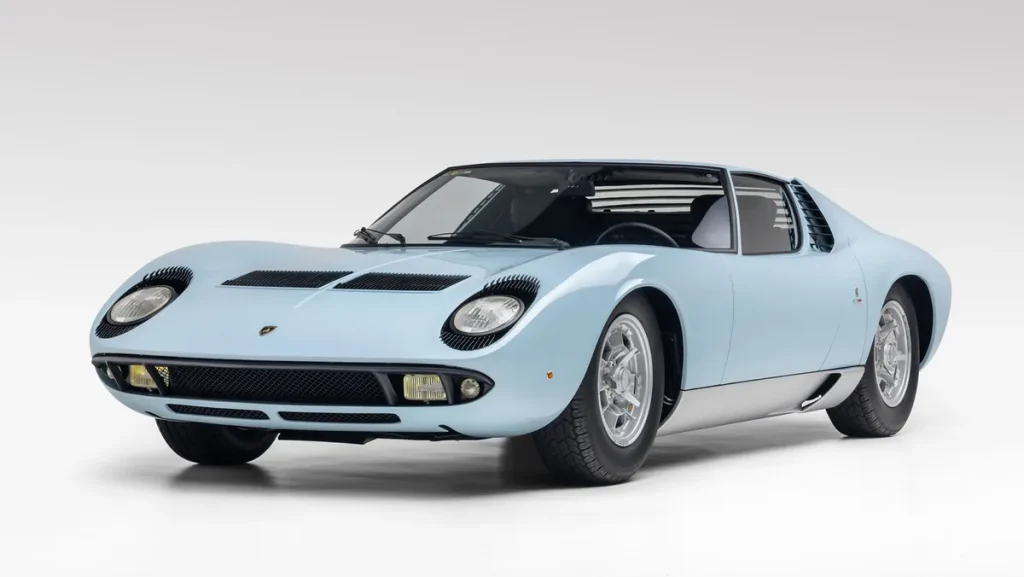
Lamborghini unveiled the Miura’s rolling chassis at the 1965 Turin auto show, and even just the naked mechanicals, with drilled holes in the monocoque and the novel sideways engine bristling with Weber carbs, were enough to cause a stir. Then, Lamborghini awarded the contract to clothe this mid-engine marvel to Bertone, which gave the assignment to a young Marcello Gandini. What he came up with was his first big hit. Road & Track magazine described the shape as “an exercise in automotive art for a particularly rapturous kind of driving.”
The production-ready version debuted at the Geneva Salon in 1966, and it now had a name – P400 – with “P” referring to Posteriore (rear) and “400” referring to the V12’s displacement in decilitres. But Ferruccio Lamborghini wanted a proper name, too, and went with Miura after a renowned breeder of fighting bulls. Lambos have donned bullfighting-themed badges ever since. What the company intended to be little more than a promotional tool quickly became a real production model, and Lamborghini built nearly 300 examples of the first series P400 versions of the Miura.
The early P400s have the most quirks and flaws, and they are generally worth less than their later counterparts. But this one, listed with Gooding & Co., is represented as an all-matching-numbers example, and the Azzurro Cielo (sky blue) paint is a hell of a colour. A comprehensive, correct restoration of the car began in 2018, and for Monterey it has a £1.5M–£1.9M estimate, which is at the very high end of the current P400 value range.
1969 Miura P400 S
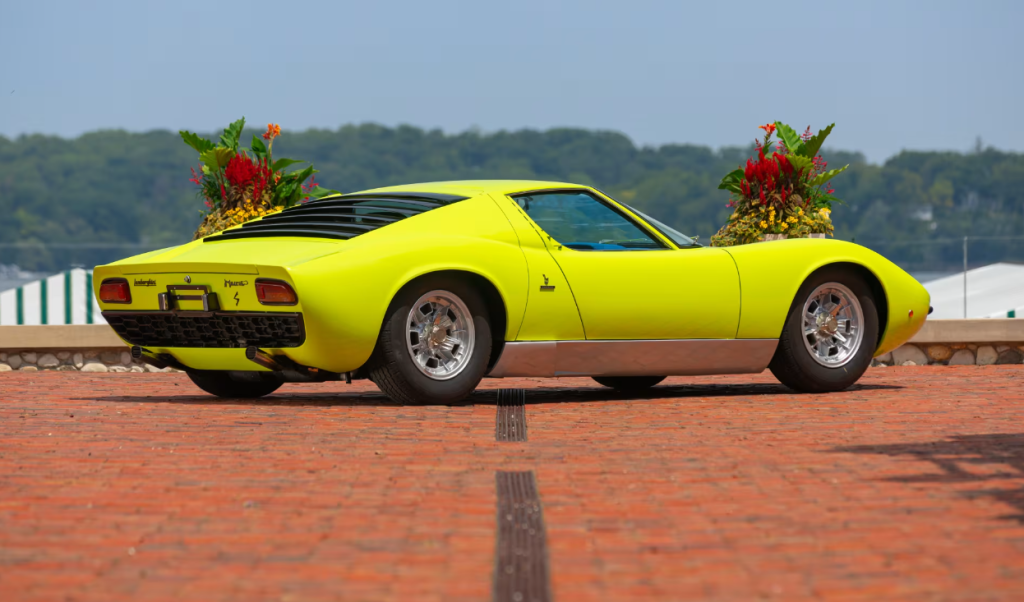
The first batch of major upgrades for the Miura arrived with the P400 S in 1969. This added vented brake rotors, power windows, optional air conditioning, revised rear suspension, and better tyres. Higher-lift cams and bigger carbs and manifolds also yielded another 20 horsepower, for a total of 370.
This Verde Miura-over-blue P400 S was previously owned by NASCAR, USAC, CART, and boat racer David “Salt” Walther. It received a reportedly three-year concours-level restoration that wrapped up in 2008 and got more recent mechanical work in the late 2010s and early 2020s. Mecum Auctions doesn’t have an estimate on the car, but current values for the P400 S are £1.6M for one in #2 (excellent) condition and top out at £1.9M for one in #1 (concours) condition.
1969 Miura P400 S
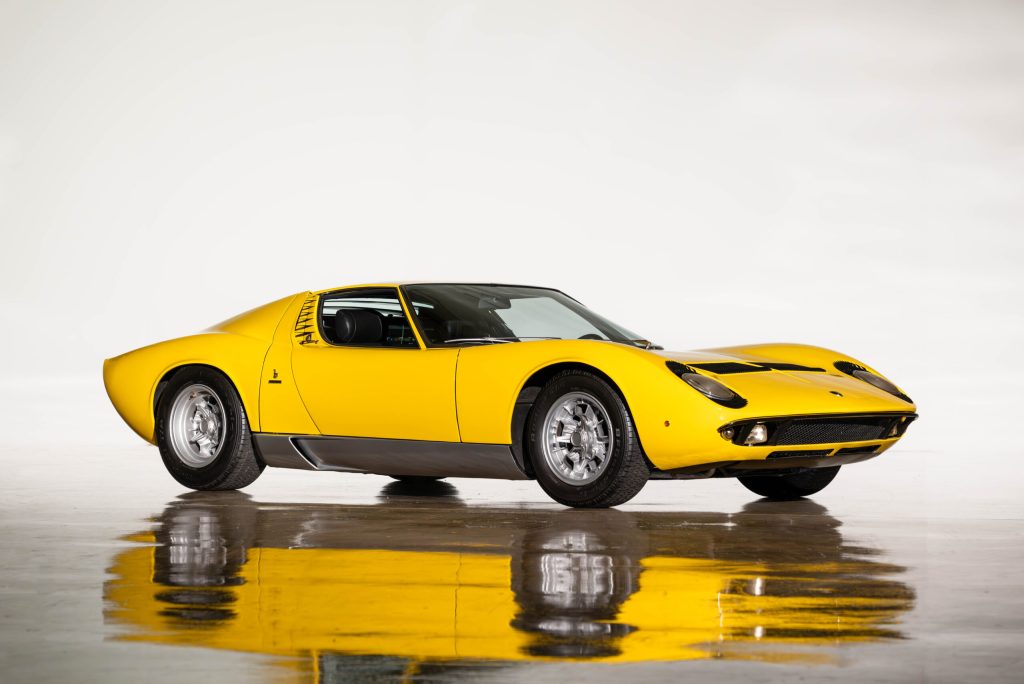
RM Sotheby’s describes this Giallo Fly-over-dark-grey P400 S as “an excellent driver’s Miura,” and the list of upgrades backs up that claim. Included on the list are a split sump (the engine and gearbox on earlier Miuras like this originally shared the same oil supply), front chassis stiffeners, a solid front shock tower brace, modified frame rails to deflect more air to the radiator and front brake rotors, and cross-drilled SV brakes with carbon/Kevlar pads and braided steel lines. Famed Lamborghini test driver and engineer Bob Wallace also rebuilt the engine as well as added Ansa exhaust and a limited-slip differential.
They are all tasteful improvements that make this Miura more enjoyable, but all those changes from factory correctness, along with a colour change (from the original silver over mustard), plus the age of the restoration (1990s) keep the price estimate down. The car last sold at auction in late 2020 for $1.16M (£900K), and the estimate for Monterey ’24 is £1.0M–£1.2M. If there’s a best “value” among these five cars, this one might be it.
1970 Miura P400 S
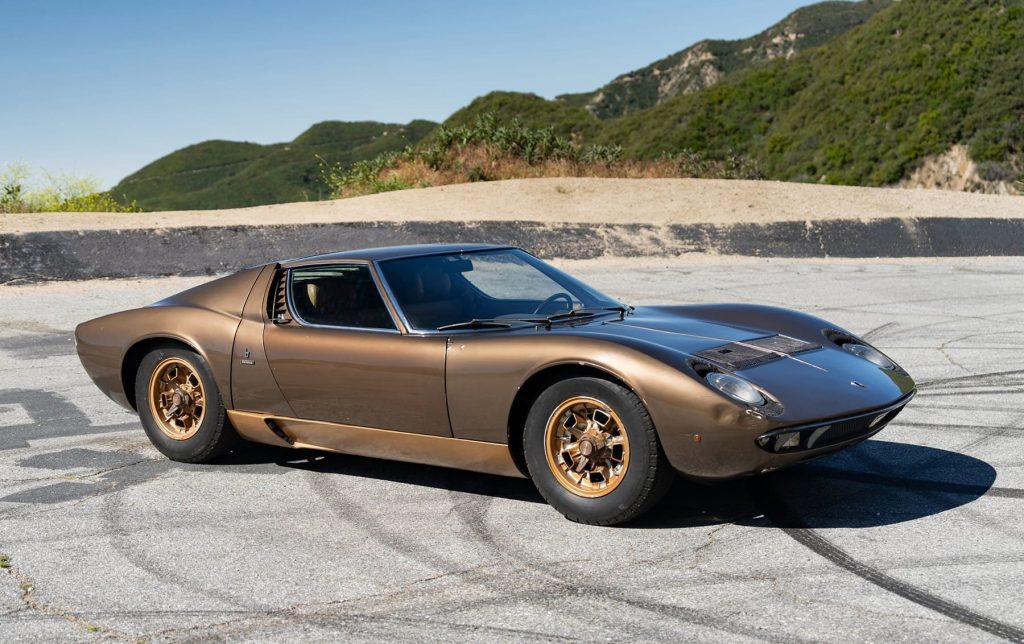
Among the many testaments to these cars’ sheer beauty is that they look just as good in brown and gold as they do in bright green or orange. But there’s more to this one than just its Luci del Bosco (“lights of the forest”) paint and Gobi (beige) vinyl with cloth inserts. Delivered new in Italy, it made its way to the US by the early 1980s and soon went into static storage in the living room of its East Rockaway, New York, owner. That sounds . . . inconvenient, but at least a Miura sits very low, so it probably never blocked the television.
Earlier this year, this Miura finally broke out of living room limbo, which apparently required demolishing a few interior walls. The car is completely unrestored and had been unknown in Miura circles until it resurfaced. The specs, preservation, and colours are all big selling points that should get bidders excited. It has a £1.5–£1.9M estimate for Pebble Beach.
1971 Miura P400 SV
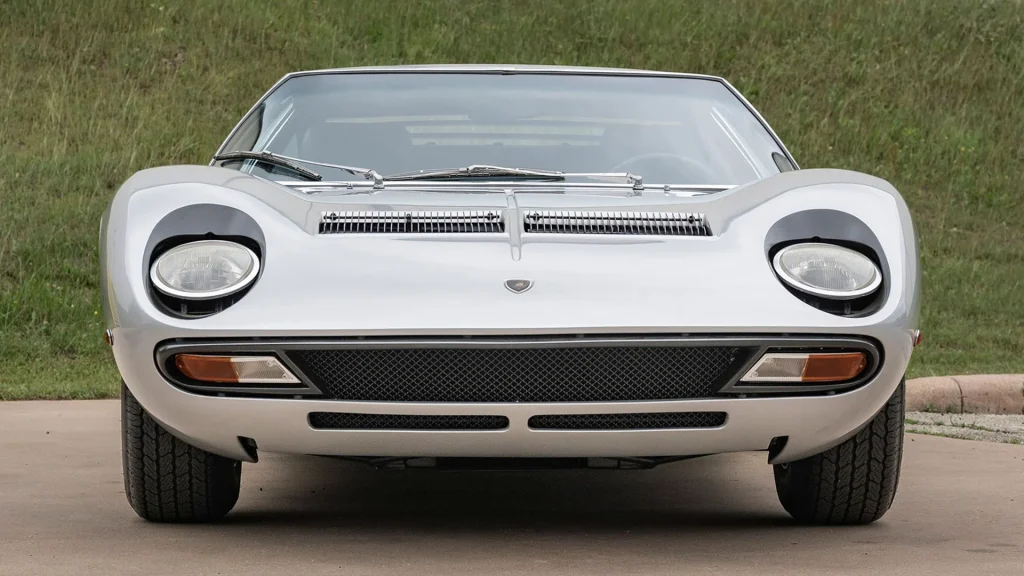
After the P400 S, the next big changes to the Miura came with the P400 SV in 1971. Lamborghini lowered the nose to alleviate front-end lift at high speed, tweaked the rear suspension, and flared the rear wings for wider, 15-inch low-profile tyres. The exposed retractable headlights also lost their signature black trim that some refer to as “eyelashes,” while new cam timing, bigger intake valves, and rejetted carbs yielded 385bhp. Later SVs also got a split sump to give separate oil supplies to crankcase and gearbox. Just one SV is on offer in Monterey this year, and it is one of the later split-sump cars. Delivered new to Germany and optioned with factory air conditioning, it is represented with its matching-numbers engine.
If you’ve been following the automotive corners of the internet for a while, you may have seen this car before. Back in 2013, it made headlines when it caught fire in London shortly after a mechanical service. Then painted yellow, it suffered extensive damage, but it didn’t quite burn to a crisp, so enough of the car was deemed salvageable to justify a restoration, for which it went to Italy in 2015. Many ex-Lamborghini factory employees performed the work, and Lamborghini test driver Valentino Balboni reportedly oversaw the project. At Monterey this year, it has a presale estimate of £2.2M–£2.7M.
